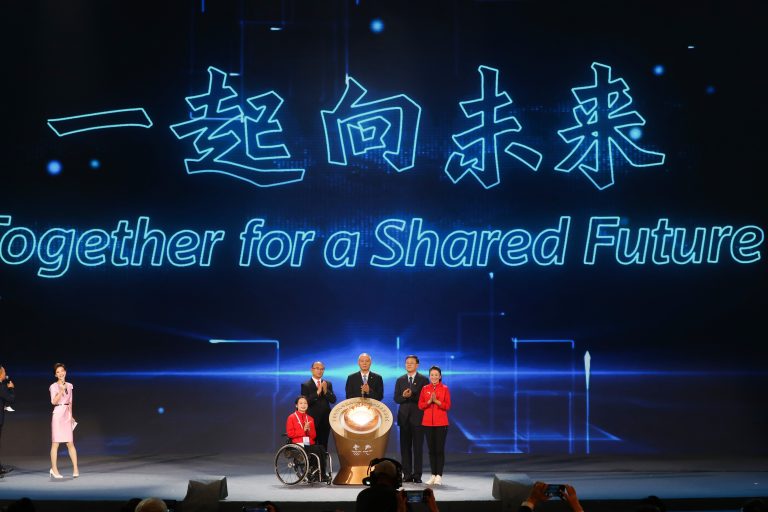Both Canada and the United Kingdom have announced that they will be diplomatically boycotting the 2022 Beijing Winter Olympic games scheduled to kick off in February. A diplomatic boycott means that though athletes from these nations will participate in the games, government officials will not attend them.
Speaking at a press conference on Dec. 8, Canadian Prime Minister Justin Trudeau revealed that Ottawa has been “in conversation” with its allies around the world regarding the Winter Olympics.
“As a country, indeed, as many partners around the world, we are extremely concerned by the repeated human rights violations by the Chinese government. That is why we are announcing today that we will not be sending any diplomatic representation to the Beijing Olympic [and] Paralympic Games this winter,” Trudeau said. He added that Canada’s athletes will have the “fullest support” while participating in the games.
A day earlier, UK Prime Minister Boris Johnson had also made it clear that no government official from his administration will attend the games, citing the human rights abuses perpetrated by the communist regime.
However, there will be no sporting boycotts as Johnson finds it insensible. Ian Duncan Smith, a member of the Johnson government, criticized the decision as “not at all strong enough.” Smith accused Beijing of “terrorizing” Uyghurs and persecuting Tibetans and Christians.
Success
You are now signed up for our newsletter
Success
Check your email to complete sign up
Australia has also announced a boycott of the Winter Olympics over Beijing’s human rights abuses against the Uyghur minority. Prime Minister Scott Morrison said that the boycott should come as “no surprise” since relations between the two nations have been stressed in recent years.
He insisted that the boycott is “the right thing to do” and is in “Australia’s national interest.” China had earlier imposed trade barriers against Australian imports after Canberra called on for an international investigation into the origins of COVID-19.
New Zealand Deputy Prime Minister Grant Robertson announced a diplomatic boycott of the Olympics on Dec. 7, making it clear that no ministers from the country will attend the games. In addition to human rights issues, the decision was also influenced by other factors like COVID-19.
The boycotts announced by Canada, the UK, New Zealand, and Australia follow Washington’s decision to diplomatically boycott the games. “US diplomatic or official representation would treat these games as business as usual in the face of the PRC’s [People’s Republic of China] egregious human rights abuses and atrocities in Xinjiang… We simply can’t do that,” White House press secretary Jen Psaki had said about the U.S. boycott.
Beijing has been angered by the boycotts and is attempting to pass such actions as having no consequence. At a press conference, Chinese foreign ministry spokesperson Wang Wenbin accused Canada, Australia, the United States, and the United Kingdom of using the Olympic platform for “political manipulation.” Whether officials from these countries come or not, “they will see the successful Beijing Games,” Wenbin insisted. He also warned that these nations will “pay a price” for their wrong moves.
Despite the growing number of political boycotts and retaliatory statements from China, the International Olympic Committee (IOC) has remained uninvolved in the issue. Thomas Bach, president of the IOC, said that the organization was pleased with the boycotting nations for not blocking their athletes from participating in the games.
As to the political boycott, the organization is not worried about such matters. “The presence of government officials is a political decision for each government so the principle of IOC neutrality applies,” Bach said.


















